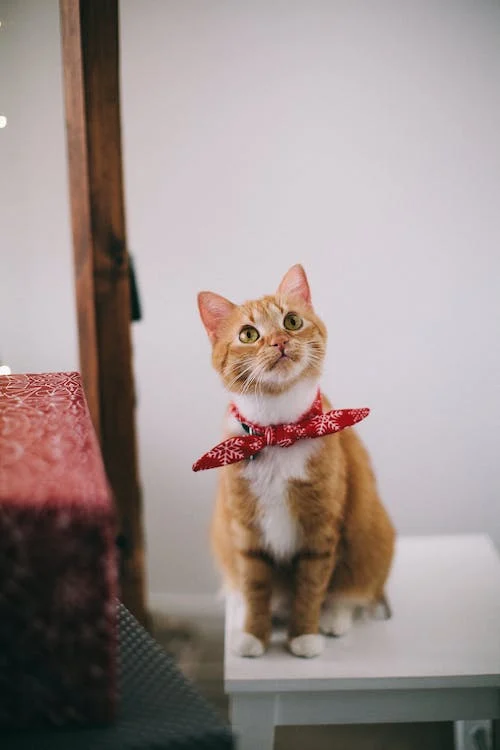Cats, like dogs, are naturally curious creatures. However, cats’ curiosity can occasionally get the best of them, which is especially true when they eat unfamiliar items. Ordinary objects such as rocks, rope, and old fabric are overlooked by humans. However, many cats, as life enthusiasts, aren’t afraid to try everything from toilet paper to thread, clothing, and even rodents and insects.
While many of these items pass through their intestinal tract without a problem, a cat’s insatiable quest for life can occasionally cause issues. Most of the time, if your cat ingests a foreign object, you may not have much time to react.
Nobody wants to think about their dog or cat ingesting paint thinner or detergent. Accidental pet poisoning does occur, and it’s more common than you might imagine. That is why it is important for pet owners to be prepared. If your cat gets into something she shouldn’t, here’s what you should do. Plus, there’s one thing you should never do if you think your pet has eaten something harmful.
There’s a good chance there’s more unsafe material in your house than you believe. According to the American Society for the Prevention of Cruelty to Animals (ASPCA), these are the most common potentially dangerous items that pets get into. If you have any of these around your home, make sure they’re out of reach of your furry pet.
- Over-the-counter medicines, natural herbs, supplements, and any other human medication.
- Human foods such as onions, garlic, chocolate, coffee, grapes, and raisins.
- Pesticides like insecticides and rodenticides
- Cleaning supplies including paint, and lawn and garden supplies.
- Medications for animals are also included. If your pet drinks more than she needs, it can be dangerous.
How to Know If Your Cat Ingested Something It Shouldn’t?
Toxicity symptoms differ based on what your pet has consumed. However, they could include nausea, vomiting, lack of coordination, coughing, sneezing, difficulty breathing, or seizures. Lack of appetite, excessive drinking, sluggishness, and even severe excitability are all signs that something is wrong.
In rare situations, a poisoned pet may not appear to be unwell at all. In fact, some reactions take longer than others, and a larger pet may not have taken enough of a chemical to become sick from it. After all, we’ve all heard the story of the miracle dog who ate a chocolate bar and was still okay.
So, keep your eyes alert for additional indicators of a problem. Consider whether your pet may have gotten into the item if you come across an open or spilled container, an empty wrapper, or torn-open packing. If there’s even a remote likelihood that the response is yes, you should presume she’s in danger of being poisoned.
What To Do If Your Cat Ingested Something It Shouldn’t?
- Contact Your Veterinarian As Soon As Possible: If you’re asking, “when should I take my cat to the vet?” the answer is “right away!” Even if your pet appears to be acting well and fine after suspiciously ingesting something, remember that it’s always better to be safe than sorry. If your veterinarian isn’t available after hours, contact a 24-hour veterinary hospital.
- Place Your Pet in a Secure Location: Remove him from the toxin, so he doesn’t ingest anymore. If you have any other animals, keep them in a separate room, so they don’t come into contact with the dangerous chemical or your pet.
- Prevent Your Pet from Grooming Himself: Do this, particularly if you suspect the material has gotten on his fur or paws. To remove the pollutant, you may need to bathe your pet but see your veterinarian first. Some chemicals such as those used in flea may be reabsorbed into your pet’s skin after washing.
- Never Try to Make Your Pet Vomit Without Your Veterinarian’s Permission: It’s possible that you’ll make things worse rather than better. Some swallowed materials are caustic, and if vomited back up, they might cause serious esophageal irritation.
What your pet ate will determine the best treatment approach. In most cases, your veterinarian may recommend bringing your pet in for IV fluids, vomiting, or the use of activated charcoal – which can assist absorb the toxin. Vets will also assess if your pet requires more therapy. Dogs who have eaten chocolate, for example, may require a temporary catheter to prevent the poisons from being reabsorbed into the bladder.
Non-food Obstructions and Treatment
Call your veterinarian if your pet eats something other than his food. Even if socks, tennis balls, or even bits of cat toys aren’t poisonous, that doesn’t mean they are harmless. Intestinal obstructions can be caused by soft objects such as socks or undergarments. Sharp things, such as twigs or bone fragments, can do the same thing while also posing the risk of puncturing your pet’s intestines. Your pet may require surgery to remove the objects in both circumstances.
Cats eat strange non-food items for a variety of reasons. Strange feline appetites can be due to hunger or an accident, but they can also be due to medical reasons. Your cat may consume things she shouldn’t due to malnutrition, vitamin insufficiency, diabetes, parasites, or thyroid problems. If your cat has acquired a taste for something other than cat food, go to your veterinarian. Your veterinarian will carry out a full assessment of your cat’s health, including blood testing and a urinalysis, to determine the cause of her unusual eating habits.
A life-threatening situation can occur when a foreign object that is too large to pass through the cat’s digestive tract was consumed. Vomiting, diarrhea, constipation, stomach pain, lack of appetite, tiredness, and aggressive behavior are all symptoms of obstruction. Blockages might be partial or complete, but they are always harmful and needs veterinarians’ attention. If left untreated, it can cause irreversible damage to the colon and intestines, as well as blood poisoning and even death.
When dealing with foreign object ingestion, the initial step is to locate the foreign object. During this kind of situation, your veterinarian will do an abdominal exam and X-rays. If the object is still in your cat’s stomach after this, your vet will most likely induce vomiting. If the foreign object has already made its way into the intestines and is causing an obstruction, the next step is to have it surgically removed. As your cat recovers, keep a close eye on her and prevent her access to potentially dangerous foreign things like strings or thread.

